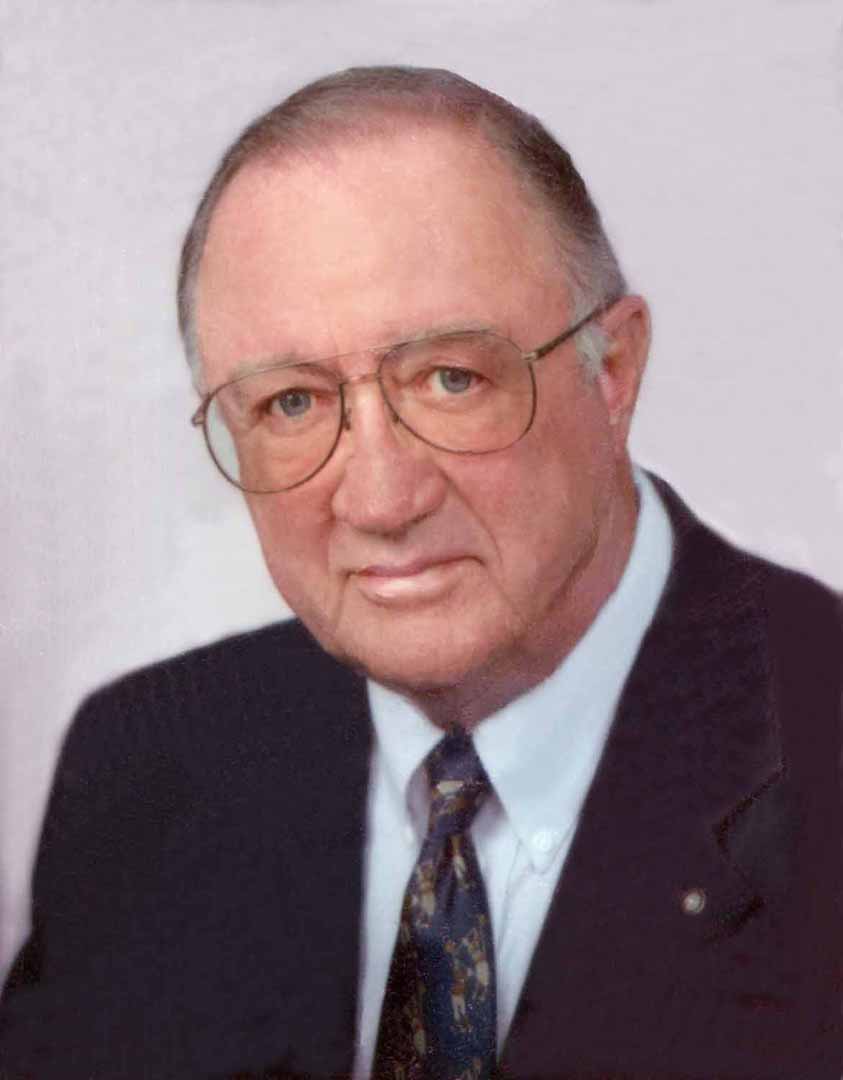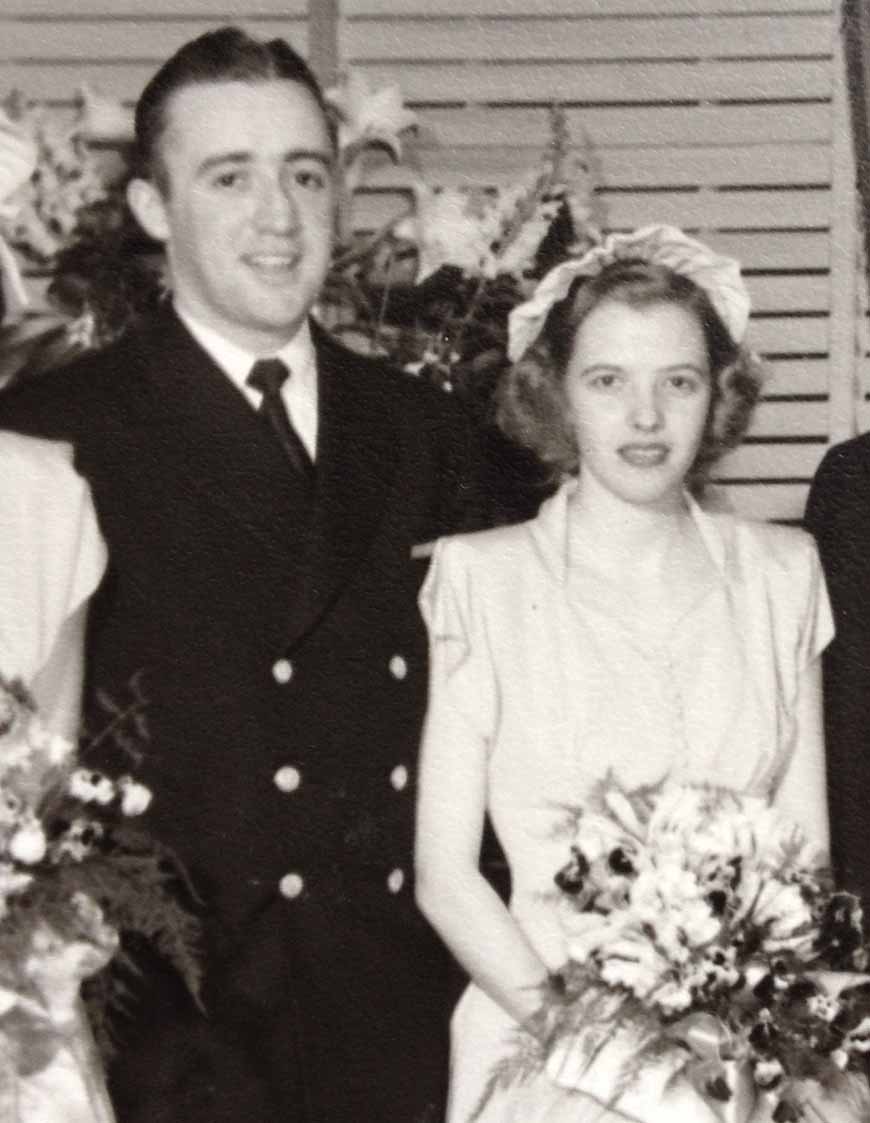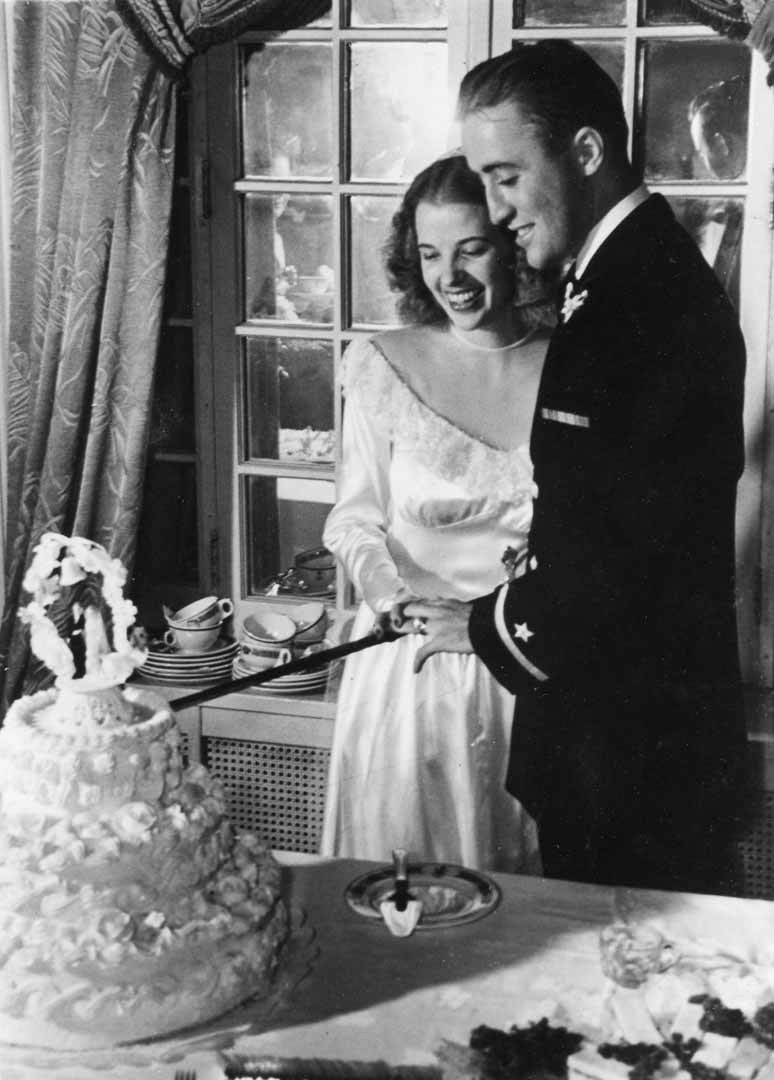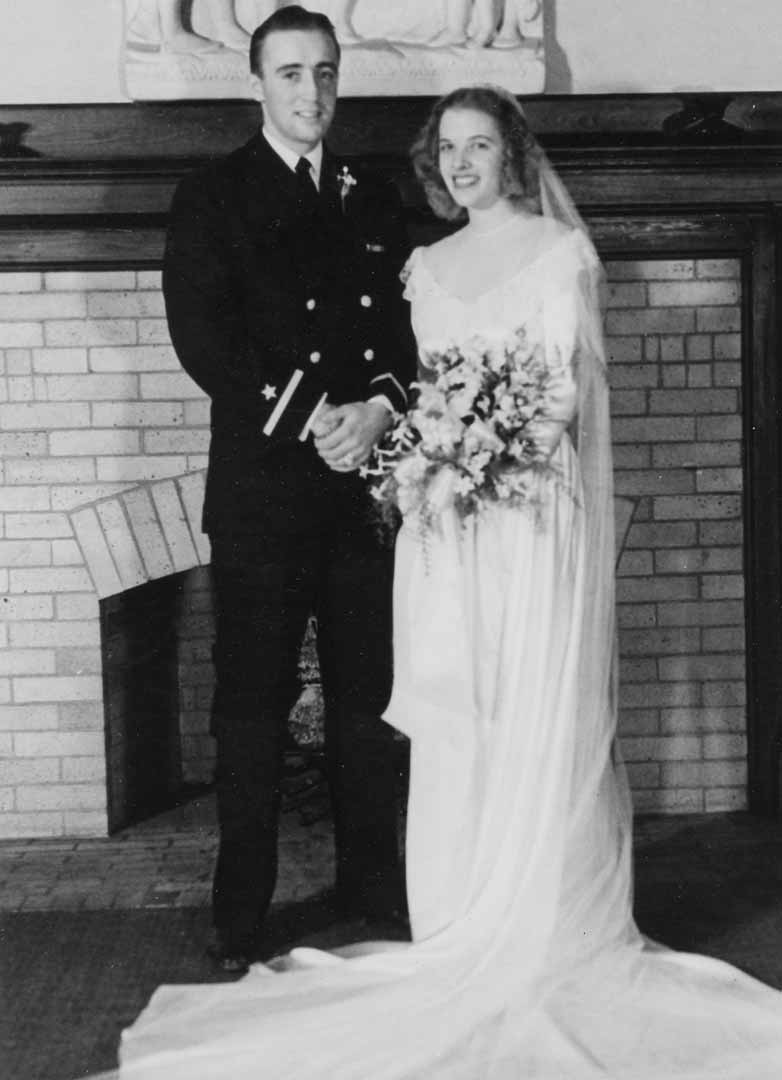FORMER CORONADAN, ROBIE ROBESON
Born to gentry on the eve of the Great Depression, Robert Holmes Robeson observed helplessly as his father’s hard-earned wealth disappeared.
He watched as his father reinvented and humbled himself over and over again just to feed his family. The experience left the younger Robeson with a motivation that can’t be taught in school, unless, of course, it’s from the school of hard of knocks.
Those lessons served the younger Robeson his entire life, as he worked and saved, knowing that, based on his own father’s experiences, at any time one’s fortunes could disappear.
In the end, his proudest assets weren’t of the financial sort. He referred to them as “Blessings,” and those Blessings arrived in the form of pride in serving his country, and in love for his family.
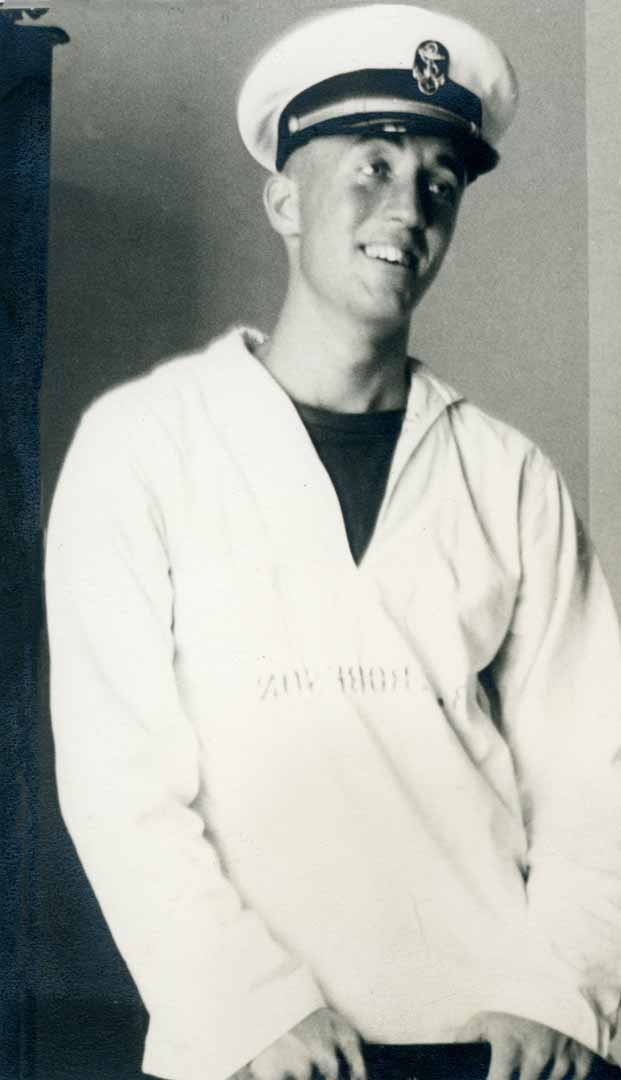
Near the end, this father of two and recipient of a Bronze Star, a Legion of Merit Award, and two Presidential Citations, summed it up succinctly while talking about his life:
“I would just like to be remembered as having been a good naval officer to my men, a good husband to my wife, and a good father to my children,” he said.
Robie Robeson died from natural causes November 19. He was 94 years old. Family surrounded him at the time of his passing, and his final moments were happy ones, as he had made his peace with the Lord.
Known as “Robie” to family and friends, Robert Robeson was the middle child of three born to RH Robeson and Edna Stape, of Rochester, New York – a well-to-do, upper middle class family. He was born September 3, 1923.
He was very close to his sisters growing up, even though he took great joy in torturing them by chasing them around the farm with garter snakes and playing other tricks on them.
His grandfather had purchased and opened a camp from the British government in Canada, and the family spent most of their summers there until 1939.
Robie’s father owned a knife factory in Rochester and was quite successful. When World War I came, half the plant was modified to make ammunition shells for the Army.
In 1925, his father borrowed money from the bank and rebuilt the factory again, taking it back to a knife factory. A self-made man, the elder Robeson earned nearly a million dollars through his business acumen – a lot of money in those days.
Then, a series of unfortunate events put him out of business. The unions went on strike and his workers refused to work. He couldn’t pay the bank so his business was foreclosed on. The bank kept all his money. Then the stock market crashed and the world was thrust into turmoil. Robie’s father was broke.
“My father went from being one of the town’s respected and elite leaders, to practically being a beggar,” remembered the younger Robeson. The same men he played golf with and shared private men’s club benefits with now turned their backs on him.”
Blessed with an envious work ethic, the senior Robeson worked a number of odd, minimum wage jobs before taking hot water heater sales door-to-door, which made his boss a lot of money in a business that had been struggling.
He did bookkeeping for a couple of restaurants so his family could eat free there. No one went hungry in the Robeson family, no matter how bad times got.
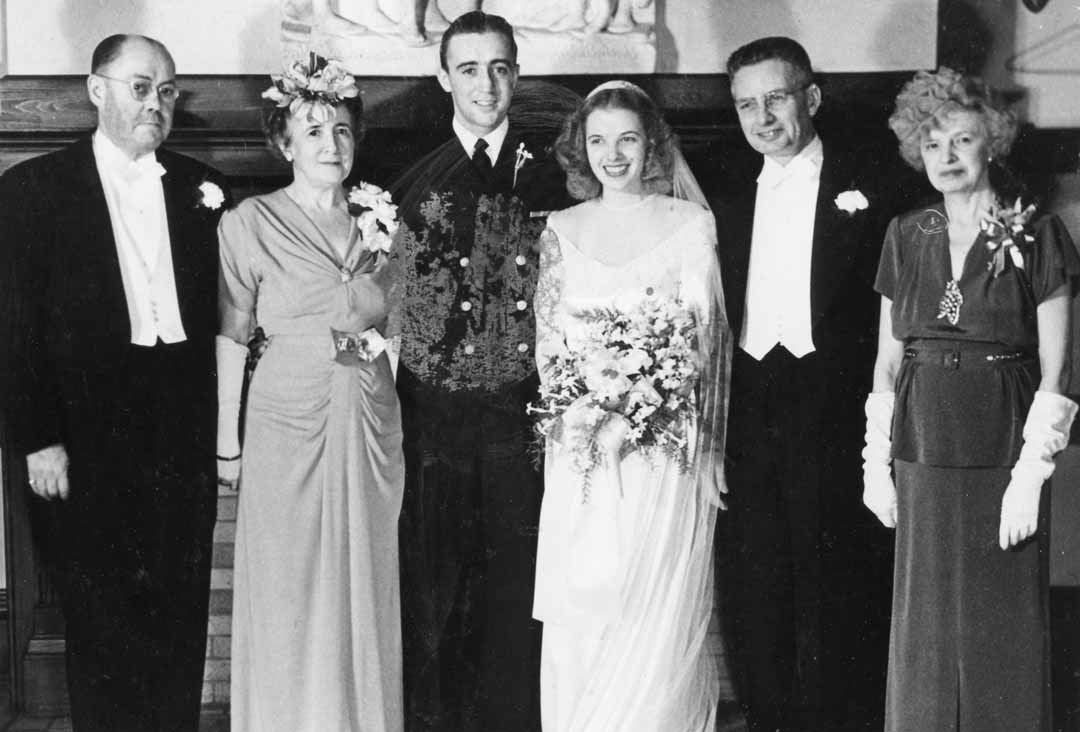
“I watched my father survive in the toughest of times. I figured if he could do it, I better do it,” recalled Robie.
His mother was of German decent. She worked for George Eastman, of Eastman Kodak fame in the 1920s. They became good friends, and he taught her everything he knew. Had she not married and had children, she might have used those photographic talents on a grand scale.
Robie’s childhood was a happy one. He played basketball, baseball and football. He never played music, but wished he had until his dying day.
“My mother wanted me to play piano. We had a nice one, but I wanted to play violin because I had a crush on the violin teacher. She was awfully cute. One day she quit, and that was the end of my violin lessons.”
Still, music was in his blood. He loved to sing and was blessed with a marvelously high soprano voice as a child. He couldn’t read music, but would memorize songs and sing at any opportunity that presented itself – school functions, area church gatherings, or just along with the radio.
“I never sang at home. My parents weren’t really interested in my singing. But we had a radio and I remember listening to the Lone Ranger, the Shadow, and of course we always listened when Joe Lewis had a fight. I remember I’d get all bundled up to look like a fighter and dance around throwing ghost punches during the fights.”
After the crash Robie’s family had absolutely no money. “If I wanted money I had to go work for it. For a while I sold newspapers on the street corner near our house. My folks didn’t like that because their friends could see their son was hocking newspapers on the street corner.
“As I grew older and stronger, I could cut lawns. I was the only guy in the neighborhood who had an extension ladder (because our house was so big) so I could do outside windows for other folks as well.
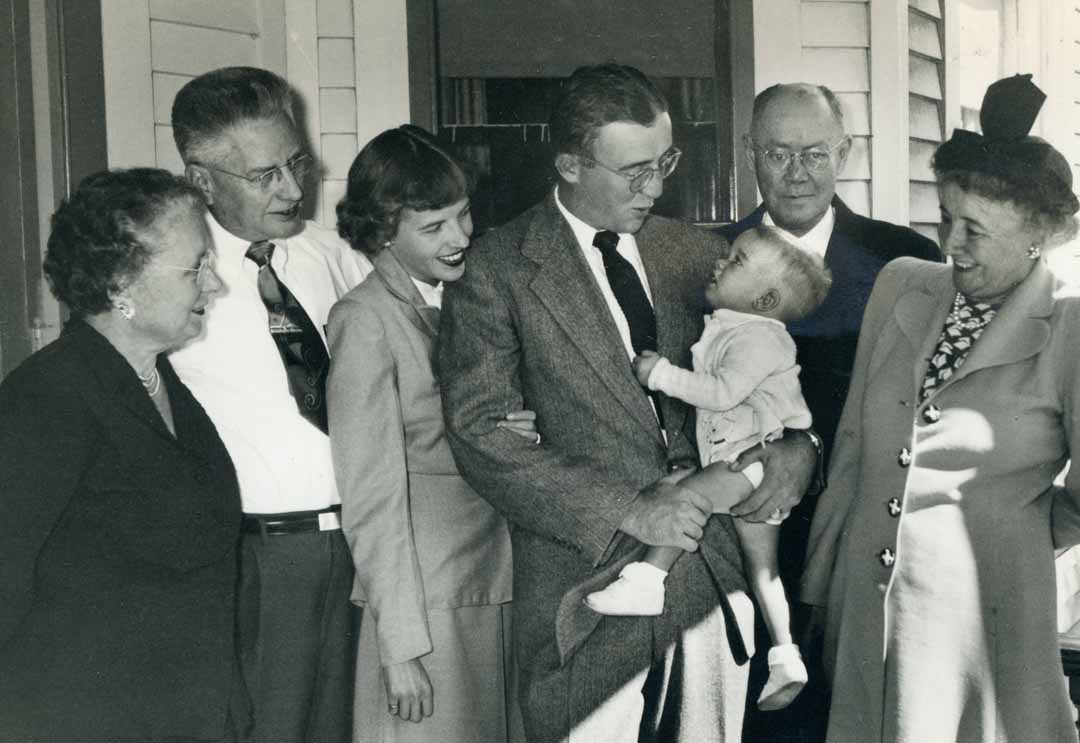
“I used to shovel snow too. Once we had a snowstorm and I worked for eight hours to clean the sidewalks. Just as I went to get paid for it, the snowplow went by and blew snow all over my clean walks. I had to work another hour and a half before I could get paid.”
To earn extra money, Robie would milk the neighbor’s cows, but valuable lessons lurked just around that corner. “I remember the neighbor was an alcoholic,” said Robie.
“I had a front row seat watching him hit the bottom with his drinking, and then come to grips with his alcoholism. He was quite a guy. From then on he was against drinking. It was something of an inspiration to me, at such a young age, to watch a man come to grips with his demons. I never forgot that.”
Robie’s youth was made up of family trips to Canada for the summers. He attended a high school with 360 other students. Even though he was only 12 at the time, he remembered seeing President Franklin Delano Roosevelt drive by, and all the excitement it created.
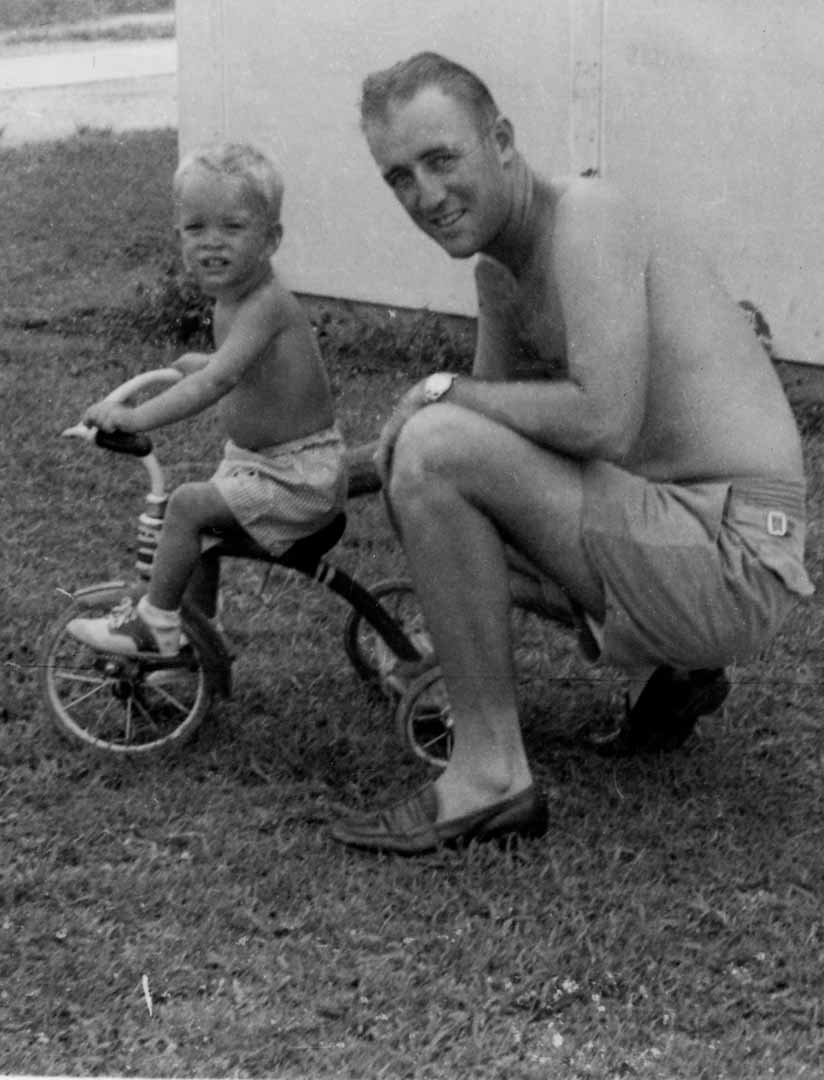
One rainy day, a friend’s aunt took Robie and two friends down to visit the Naval Academy. He was so impressed that he collected all the information he could carry. When he got home, he announced to his parents that he was going into the Navy.
At the age of 14 he had just made Eagle Scout. He decided, however, to cut out the scouting and focus on school, basketball, football and baseball instead.
From the Naval Academy he learned an important clue. The more things he had on his resume – sports, community work and the like – the better his chances were for admission. That led to a lifetime of community work through such groups as Rotary (he was a local member since 1973).
“When my time came to go to the Naval Academy, I was a stand-by because my congressman had already chosen someone. So I enrolled at the University of Rochester.”
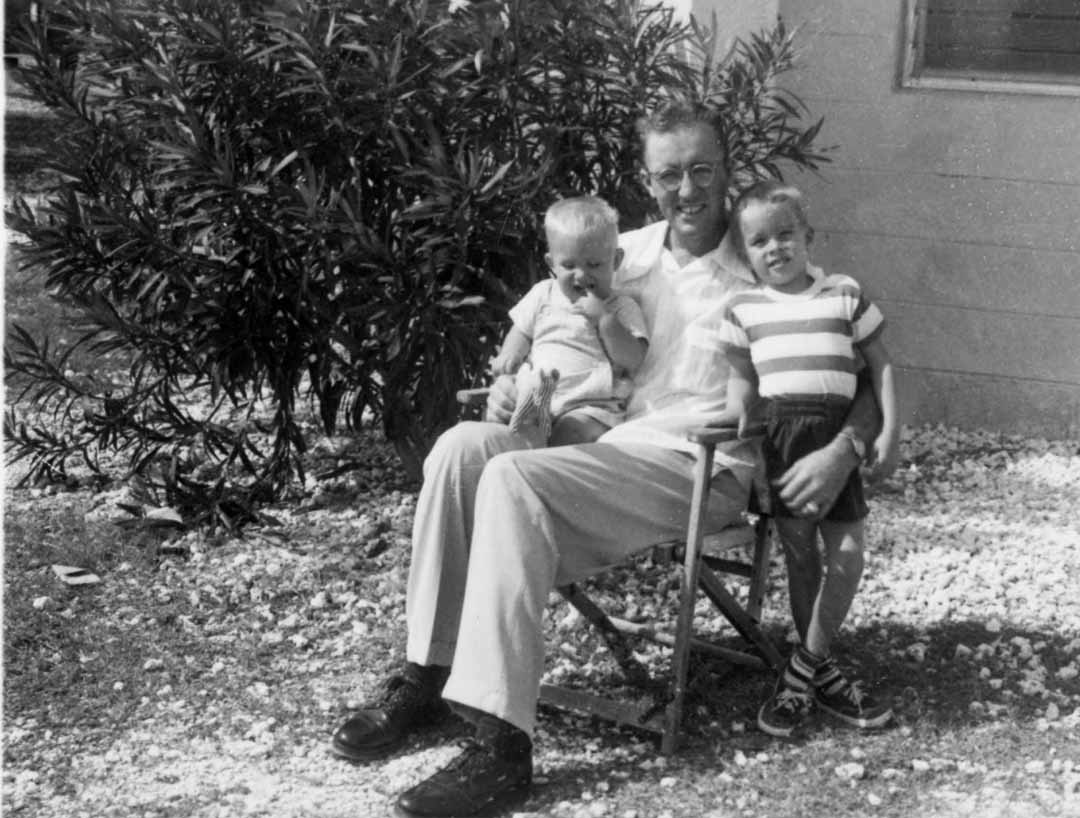
His first and only year at University of Rochester (1941), Winston Churchill gave the commencement address via a ten-minute radio communication directed specifically at the graduating seniors at the University of Rochester.
Robie didn’t remember that, but he did remember seeing Tommy Dorsey and Frank Sinatra perform at the Spring Ball. “I remember thinking, hey, that Sinatra guy is skinny as a rail, but he sure does have a good voice.”
The next year he was accepted into the Naval Academy, but not before the Japanese had attacked Pearl Harbor.
What that did was cut the term at the Naval Academy down from four years to three, as more officers were needed, and quickly. The cadets received assignments the moment they left the academy. Robie graduated as a midshipman in 1945.
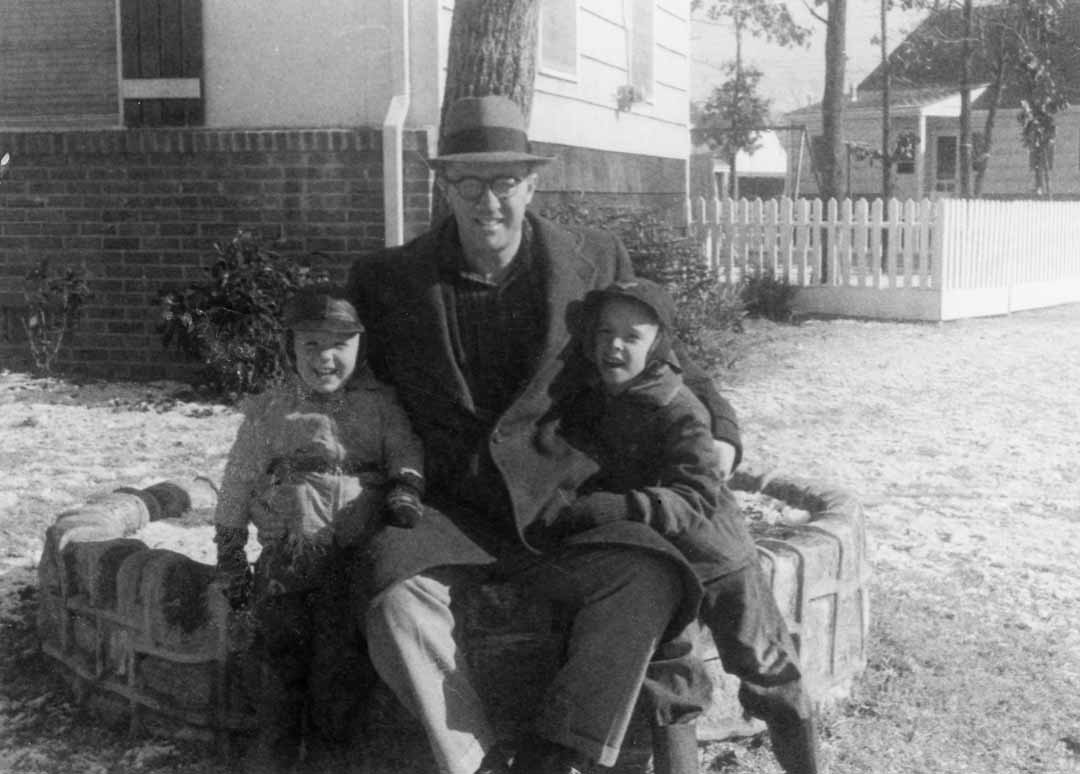
He was flown to Guam to take command of decommissioning the light cruiser Columbia, (CL-56), which had fought during WWII and survived a Kamikaze attack earlier that year. He moved up quickly from there.
Being the green kid fresh from the Academy, at first he was taken advantage of by more veteran officers and crew – many who had just come through the war.
Freshly “grown” officers almost always had to fight for respect in the Navy, but more so for the Class of ’45. They were rushed through a three-year program, instead of the traditional four-year curriculum at the Naval Academy.
Soon, however, Robie learned to stand his ground and in time became a respected leader of men, with an immaculate military career. Although he saw no action in World War II, he served on, or commanded, more than half a dozen ships, and survived storms at sea that sent many a ship and crew to their doom.
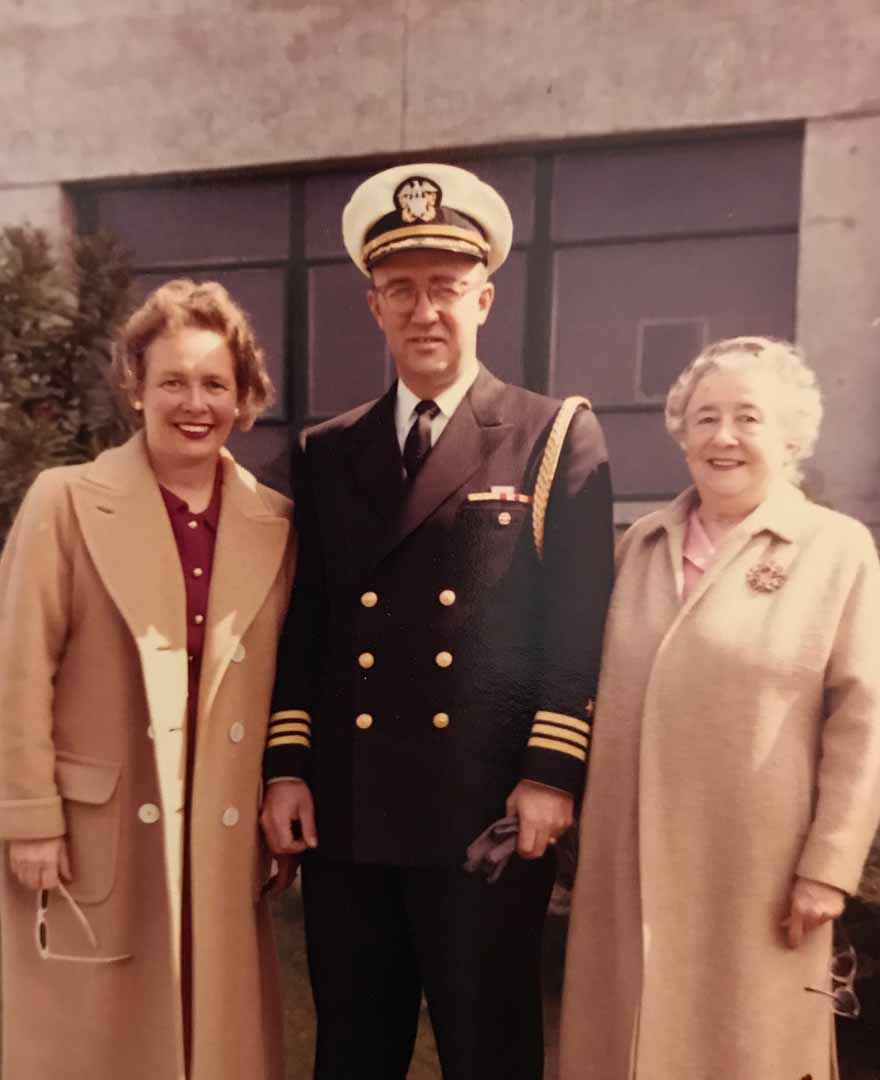
His first duty station was Long Beach, CA. The following year he reported to duty in Key West, FL to take control of decommissioning of an LSM (medium sized landing ship).
He served as captain aboard the USS Rochester (1947), USS Wilke (1949), USS Strickland (1960), USS Haverfield (1961), and the USS Bradley (1964). Duty stations included Key West, Norfolk, Washington, DC, Honolulu, Guam, San Francisco and San Diego.
Once, 100 miles south of Adak, Alaska, the radar ship he was commanding was caught in a vicious typhoon. With waves 30-50 feet crashing over the decks, the ship fought to hold course.
As the crew fought to keep the ship steady, a gun was swept off the bow. The bunk areas were flooded, and one of the two ships’ generators was damaged. They spent 50 hours at ten knots trying to steer through the storm. Had they lost the other generator, the ship wouldn’t have survived.
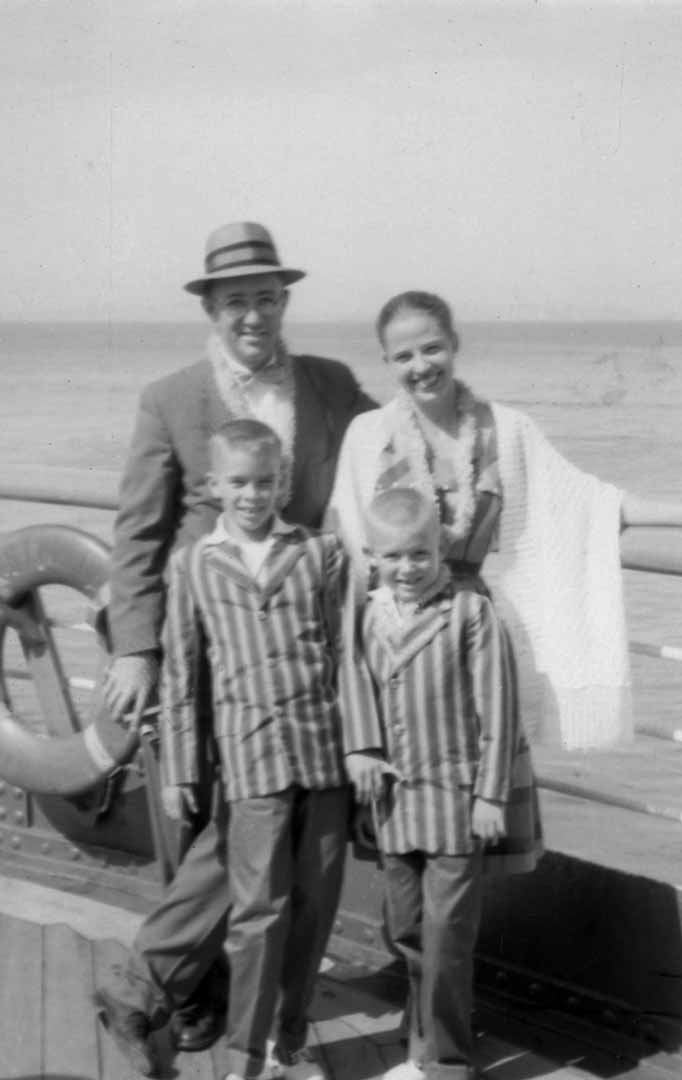
In December 1945, Robie married the love of his young life – Mary Stephens. He was 22 years of age; she was 23. Before long they had two sons – Jim and Scott.
Being a typical Navy family, the Robesons had to pick up and move every six months to two years (they moved nearly a dozen times, recalled son Jim), the family rolled with the changes and became vital to the successful transitions that only a family could provide.
Mary died in 1984, after 39 years of marriage. Three years later, in 1987, Robie met Louanna Reithner. When he discovered they shared the same birthdate, he proposed marriage to her. Louanna became his second wife, and a major part of the Robeson family of children, grandchildren, and great grandchildren. Robie and Louanna were married 30 years and were as much in love when he died as they were when they met.
After the Navy, Robie volunteered for a civilian-run organization designed to educate young people about the Navy. He was hired to train new agents, and sold life insurance at New York Life for a time. They lived comfortably in Hawaii for many years – his favorite place on the planet, he would often say. But it was Coronado his children grew to call home. They spent many years on the island, where Jim and Scott attended Coronado High School.
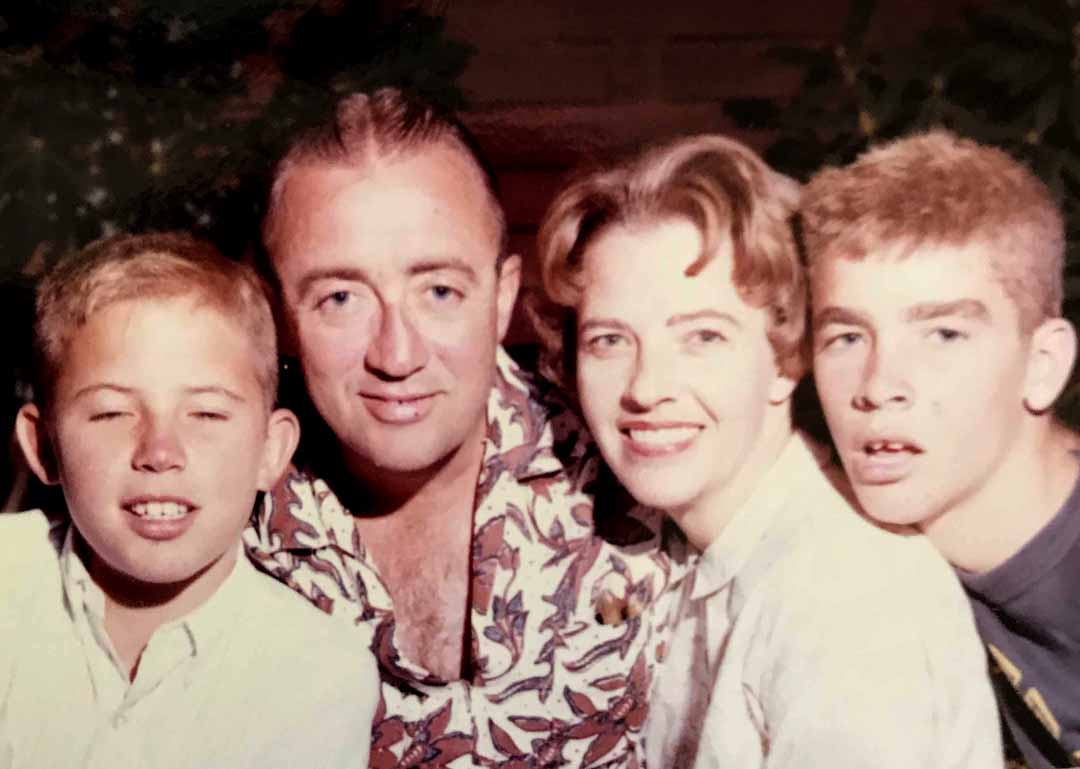
There were many inspirational people throughout Robie’s long and storied life. They ranged from neighbors struggling during the Great Depression to commanding officers and leaders in business. But he always felt the thing that most helped shape his character was seeing his father lose all his money, and realizing that as he grew up, he had to work the rest of his life.
Watching how his father never let anything or anyone defeat him ran deep inside young Robie, like blood itself, for the rest of his life.
Shortly before his passing, Robie sat down with a biographer. When asked about his legacy, he became pensive – thoughtful. “If I could write my own legacy,” he said, “it would be that I was successful in life and took care of my family. And I got out of the way when it was necessary to be gone.”
Another question that came up was about God. “The fact that I might die some day doesn’t bother me one bit,” said Robie. “I absolutely do believe in God. I talk to Him for sometimes half an hour every night before I go to sleep.
“There is a certain set of prayers I go through every night before I go to bed. I name everyone in the family that I want to talk to God about; I talk to him about friends who need help. I ask God to help them all.
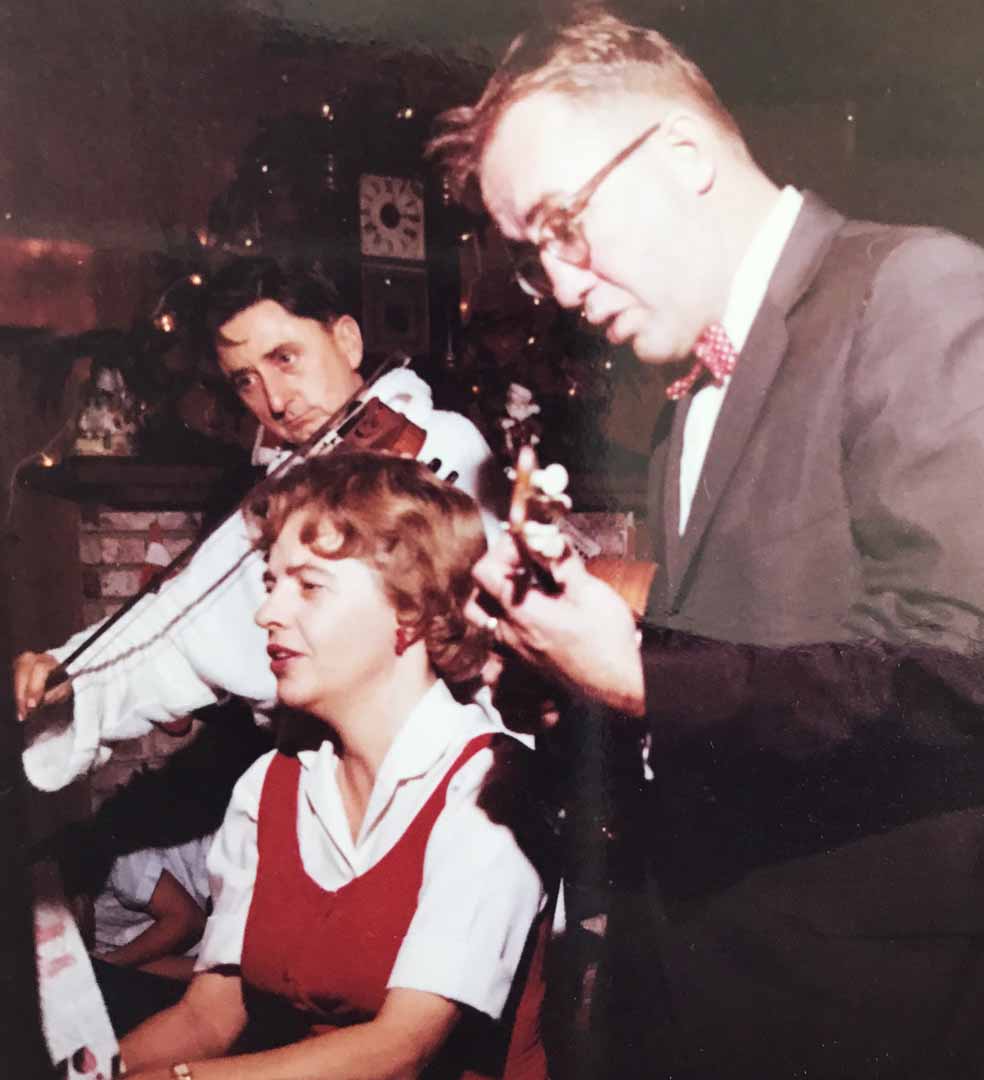
“It’s just a matter of getting the things out that I’ve been thinking about – getting them out and in front of God. Prayer is a wonderful thing and it’s key to my having a good night’s sleep, and living well into my 90s.”
While talking about his life, Robie reflected frequently upon his children. He was very pleased with the men his boys had grown to be: “I just want to let my boys know that I’m very proud of them,” he said.
Robie Robeson is survived by his second wife, Louanna Robeson, of Laguna Niguel. Also surviving him are sons Jim (Rebecca) of San Diego and Scott (Karen) of Minneapolis, Minnesota. Four grandchildren and five great grandchildren also survive him, as well as three loving stepchildren and their spouses.
Services and a Celebration of Life will be held Saturday, November 25 at noon. Services will be held at El Niguel Country Club in Laguna Niguel (23700 Clubhouse Drive).
In lieu of flowers, the family asks that donations be made, “In Memory of R.H. Robeson” to Laguna Niguel Rotary and/or the Laguna Niguel Presbyterian Church.




